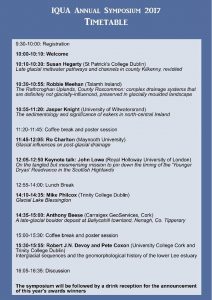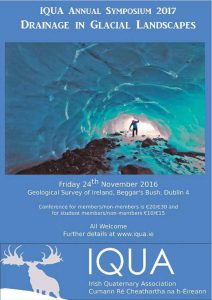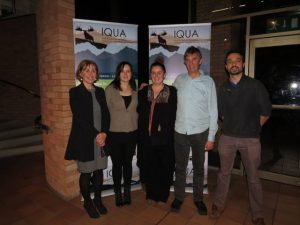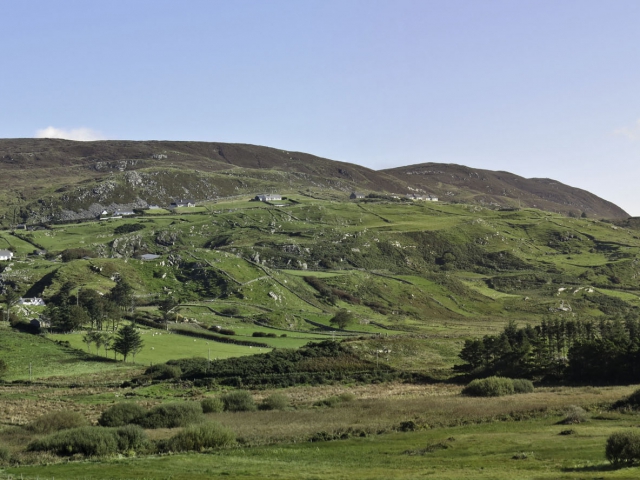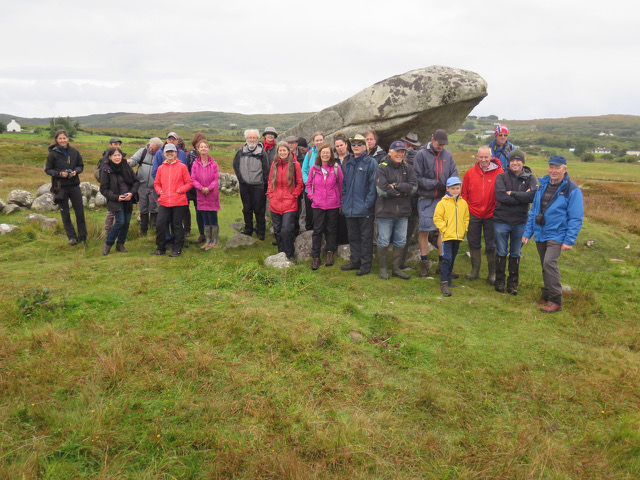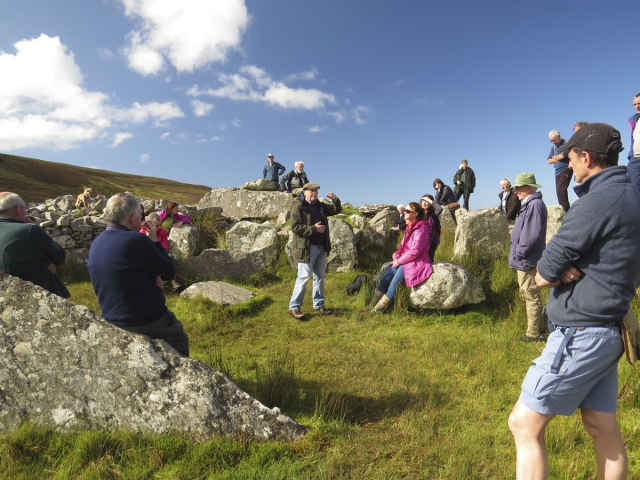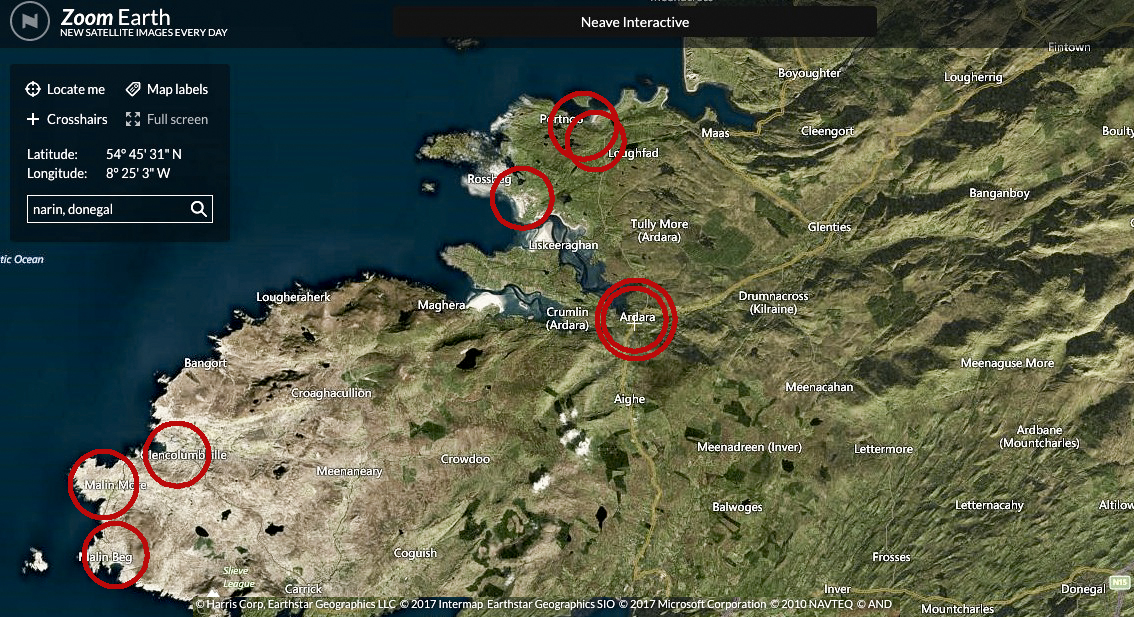The Irish Quaternary Association (IQUA) is delighted to announce that our bid to host the XX INQUA Congress in Ireland in 2019 has been succesful. Our congress theme is “Life on the Edge”, with additional sub-themes of “Dynamic Ice Sheets on a Global Scale”, “Extinction”, and “Adaptation to Environmental Change”.
IQUA Congratulates the INQUA Team on Successful Conference Bid
On behalf of the IQUA committee and the IQUA membership I am delighted to welcome the 2019 International Union of Quaternary Research (INQUA) Congress to Dublin. The team that traveled to Nagoya, Japan, with the bid to host the XX INQUA Congress in Dublin was expertly led by Pete Coxon and Fraser Mitchell. Hosting a conference of c.3000 delegates will undoubtedly have profound and lasting benefits for the Quaternary research community in Ireland. The Congress, which will be held in the Convention Centre Dublin, will showcase the Irish landscape, promote Ireland’s research reputation, facilitate the dissemination of our research activities to a wider audience and attract world-class scientists to the country.
IQUA was founded in the late 1970s in part to provide Irish field excursions for the 1977 INQUA Congress held in Birmingham. The Quaternary community in Ireland has helped shape the international research platform by providing an INQUA President (Frank Mitchell 1969-1973), a Secretary General for two terms (Pete Coxon) as well as Commission and International Focus Group leaders. Additionally Irish academics have attended most of the nineteen INQUA congresses to-date, where they presented research findings of national and international significance. The successful award of the 2019 INQUA Congress truly demonstrates an accomplishment far beyond what would be expected given the relatively small size of our academic community.
Catherine Dalton (President of IQUA)
Commenting on the successful bid, Koen Verbruggen, Director of Geological Survey of Ireland (GSI), said: “This is great news and a major milestone for Geoscience in Ireland and reflects on the distinguished history of Irish researchers and Ireland as a field locality for Quaternary studies. From Robert Lloyd Praeger, to Frank Mitchell and now Pete Coxon, Ireland has punched above its weight in this field of study. GSI continue to work with the researchers in this field, revising our national quaternary maps as part of our ongoing activities in this area and applying the latest techniques such as marine mapping in our INFOMAR programme, airborne geophysics as part of our TELLUS Programme and ground penetrating radar. The maps produced are used in a very practical and applied way in everything from Quarry Planning and Aggregate potential Mapping, to Groundwater Protection, safe drinking supplies and Geological Heritage. We look forward to showcasing this work at the conference and benefiting from the expertise of the delegates”.
You can see the bid flier INQUA 2019 Dublin flier final. the Full bid document is here. The congress will also have a range of optional pre- and post-congress tours to further sites of interest in Ireland, Northern Ireland, Great Britain and Northern Europe.
Download the map in pdf INQUA_Dublin_2010_Planned_Excursions.
Sample Proposed Mid-Congress Excursions:
Irish Midlands – Catherine Delaney, Manchester Metropolitan University
Lough Crew – Robbie Meehan, EurGeol, Geological Survey of Ireland
Natural History Museum – Matthew Parkes, National Museum of Ireland
Killiney Bay – Stephen McCarron, Maynooth University
Sample Proposed Pre/Post-Congress Excursions:
Western Ireland – Pete Coxon, Trinity College Dublin
Glacial and Quaternary History of Southeast and Southern Ireland – Colm O’Cofaigh and David Evans, Durham University
Landscape and Glacial History of the Outer Hebrides (Scotland) – Tom Bradwell, Bob McCulloch, Eileen Tisdall, Biological and Environmental Sciences, University of Stirling, UK
Kerry and South West Ireland – Sam Roberson, British Geological Survey; Stephan Harrison, University of Exeter; Tim Mighall, University of Aberdeen; Willie Warren, Geological Survey of Ireland and Mike Sheehy, Geological Survey of Ireland
Please check back here often for updates and news, and follow the link here to find out more about the history of Quaternary research in Ireland. Thanks for your support!
Check out our INQUA Dublin 2019 Twitter page or our INQUA Dublin 2019 Facebook page, and don’t forget to hit “Like” whilst you’re there!
INQUA 2019 Field Excursions, 2nd Phase Call.
This ‘Phase 2’ Call follows the pre-INQUA2015 congress Call, and the Irish LOC would like to thank all respondents to that earlier Call for helping deliver the INQUA2019 Congress to Ireland.
The Fieldtrips will be a vital and hopefully rewarding part of the Congress experience for organisers and delegates alike. To advance this process, please complete the form below as fully as possible and/or revert to us with any questions you might have in advance of submitting the form.
The deadline for completed forms is 4th November 2016.
Please note that the INQUA 2019 Congress Local Organising Committee (LOC) are committed to run all fieldtrips that are advertised as available when Congress registration opens (planned for Autumn 2018). Due to this, proposals will need to be screened at several stages, and there may be enforced selection stages. The INQUA2019 LOC Fieldtrip sub-Committee (LOCFC) will conduct an initial screening during November 2016, which will probably require further consultation with proposed excursion leaders and possibly the provision of additional information.
To ensure the smooth running of the Congress, excursion proposal leaders and teams are encouraged to inform the LOCFC or LOC Chair (Dr Bettina Stefanini or Prof. Pete Coxon respectively) at the earliest opportunity of any circumstances that might prevent the successful hosting of a proposed field trip.
Form Download Link.
